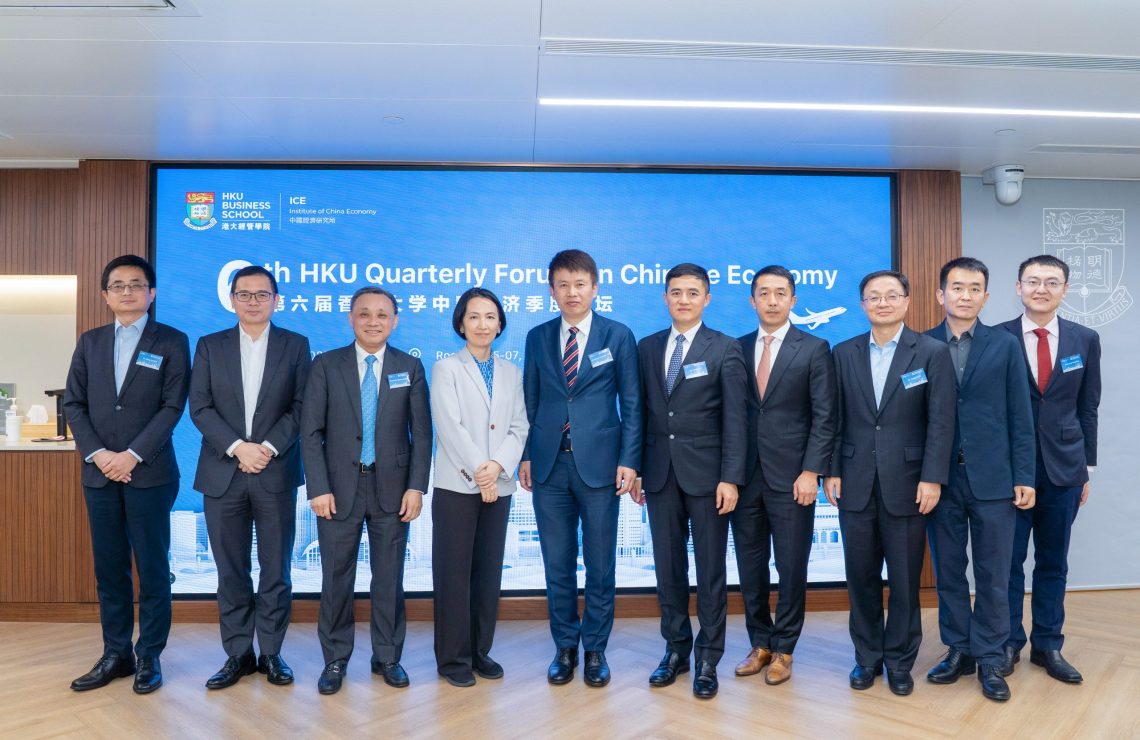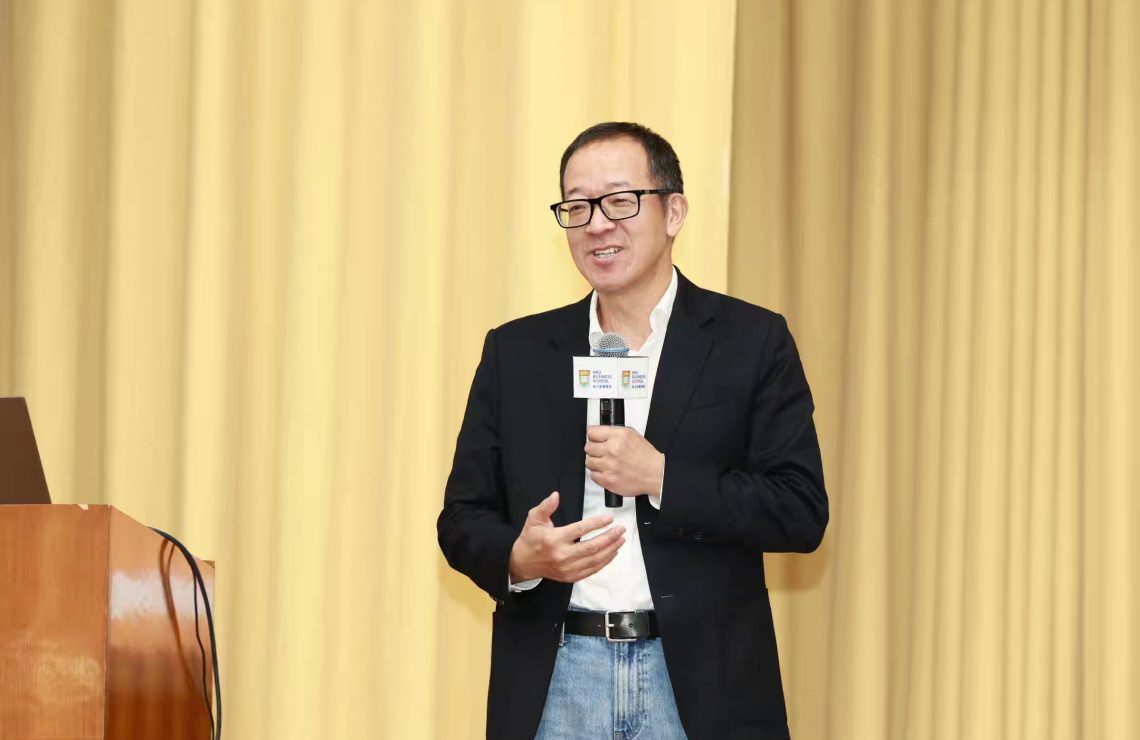平台攻略:杜金釗博士
儘管杜博士在唸本科的時候主修經濟學和金融學,但經常出席市場學研討會,以及在其市場營銷選修課中套用經濟學理論,令杜博士意識到自己非常適合修讀市場學。杜博士認為,市場學是一門很立體的學問。商品銷售的謀略變化萬千,今年最好的銷售策略明年就可能已經過時。這不僅為學者的研究提供了無窮無盡的題材,也促進了學界和業界之間的交流,以便雙方在營銷策略的制定上有更緊密的合作。因此,杜博士認為研究市場學可以幫助同學與世界接軌。
儘管私人市場也有自己的研究機構,但杜博士認為,私人企業緊迫的死線以及急促的工作節奏不利於知識創造。杜博士喜歡思維上的挑戰,他希望能夠深入研究某一特定的主題。此外,他指出,私人企業很少願意花時間修改和改進一些效果未如理想的研究項目。杜博士認為,失敗並不一定代表著終結。研究上的失敗,可以幫助研究人員對研究主題建立有更深入的了解,允許他們精益求精。故此,杜博士最終選擇了在學術界發展自己的職業。
對於有志成為學者的同學,杜博士建議他們多參與研討會從而獲得啟發和靈感,並把握成為研究助理的機會以體驗研究者的生活。杜博士發現,同學們在選擇研究主題時經常會刻意的追隨其偶像學者的步伐。但你的偶像正在從事的研究,不一定是你感興趣的。杜博士認為,研究生對研究主題的熱情乃他們能否在艱苦的研究的過程中堅持下去的關鍵。由於研究失敗是學者生涯中的家常便飯,杜博士建議同學們應同時從事多個項目。假使你其中一個項目失敗了,你也可以馬上進行另一個項目。
學界是一個非常有利於知識創造的地方。它給與學者們無限的時間,鼓勵他們不斷完善和補充他們現有的研究成果直到該研究被發報為止。這解釋了為什麼有些學者在完成研究生課程後,依然會繼續完善他們的博士論文。
在訪談中,杜博士還揭穿了「學者不需要出色的人際交往能力」這一謬論。杜博士指出,由於市場學並沒有一個清晰明確的重點問題,因此學者們必須付出更多的努力推銷以及說服業界從業員和其他學者關注自己的研究。此外,良好的溝通技巧亦能夠幫助研究生編寫出色的論文,以及在不同的場合上都能夠清晰地表達自己。
一場難忘的體驗 – 為什麼隱藏信息對住房平台有利
對杜博士而言,他在波士頓研討會上的一場分享,是他學者生涯中一段最深刻難忘的經歷。杜博士在會上總結出住房平台無需為用戶提供完美的資訊,以減少用戶之間的競爭。
住宿平台提供給消費者的訊息可以分為「垂直信息」和「水平信息」。「垂直信息」是非常非常籠統的,他們通常都是大多數用戶喜歡的服務,比如室內空調和無線上網服務等等。另一方面,「水平信息」則非常具體而且無可取代,比如地理位置和區域的交通運輸等等。雖然每個人都想要住房有無線上網服務,但並非每個人都希望住在英皇道。
儘管每個人都想要完美的房子,但現實的情況是,無論該平台有多少個供應商,完美的商品總是求過於供。為用戶提供過多的「垂直信息」也會造成競爭的假象,令所有用戶都以為其他用戶也在爭奪你一所在英皇道上、有無線上網服務的房屋。由於用戶總是期望平台能夠便捷地為他們提供服務,因此用戶之間的競爭應減到最低。因此,杜博士建議住房應減少「垂直信息」,讓「水平信息」主導用戶的選擇。
這項研究的發現引起了一名專門投資住宿平台的風險基金代表的關注。獲得跨行領域的專才認可是富有成就感的,因為這表明了杜博士進行的研究在現實生活中具有實際價值。
指導博士生 – 一項逆向工程
與業界從業員的交流對於學者很重要,因為從業員能夠為他們提供第一手資訊,幫助學者研究對現實世界有用的知識。杜博士很榮幸在今個學期能夠輔助兩位修讀工商管理博士學位,並在自身行業身居要職的學員。
杜博士表示這段經驗是一項逆向工程。一方面,杜博士教授他們如何在既定的變數和假設的條件下,利用不同的經濟模型來計算一項電子營銷策略的回報率。另一方面,他從他們口中學習了很多行業知識。這對杜博士特別有用,因為他目前正在進行一項有關企業內部溝通的研究。杜博士目前的項目是研究引入內部語言系統在什麼時候可以改善內部溝通和提升企業優勢,以及企業可以如何員工學習新的語言系統。
內部溝通對企業的整體表現舉足輕重。一所企業內部由不同專家組成,而這些專家團隊都有著自己的專業術語。低效的溝通可以引來高昂的代價。比方說,如果工程師不能有效地告訴營銷團隊他們的技術覆蓋限制,而營銷團隊不能有效地告訴工程師客戶的要求,最終生產出來的產品可能會與市場需求完全無關。因此,諸如微軟之類的大公司便開發出了自己的一套語言手冊,以方便公司內部的溝通。但是,學習語言需要付出大量的努力,而人們總是現實的。他們只會投放精力在他們認為有用的知識上。因此,對於市場學學者而言,與業界保持緊密的合作對他們能否創造出具實際操作價值的知識至關重要。
儘管成為學者並非每個人的意願,但同學們卻都希望修讀一個額外的主修以提升他們的市場競爭力。在這方面,杜博士建議同學們可考慮攻讀統計學或計算機科學。
杜博士指出,市場對有統計學背景以及擁有編程應驗的人才日益渴求。企業亦希望營銷單位在利用商業直覺和經驗制定銷售策略的同時,能夠採用更科學的方法來證實他們的主張。如今,管理階層的人員也越發熱衷於建立自己對數據的敏感度,以便自己能更有效地閱讀和了解數據分析師為自己準備的數據。
故此,市場學已經不再是一門「吹水科」。它正在整合來自心理學,經濟學,以及統計學等跨學科知識。因此,同學們必須在自己的數理邏輯上加倍努力,才能於市場上脫穎而出,趕上這個大數據的時代。
知識分享:霸權平台之間的競爭行為,以及有效和合乎道德的定價案例研究。
平台競爭和定價都是市場學的熱門話題。為方便同學學習,筆者特意這此機會向杜博士討教一番。
區域性的平台霸主泛指那些在區域市場中根深蒂固的平台公司。他們巨大的市場佔有率使他們在區域市場上名利兼得,以至其主導地位難以被新冒起的競爭者挑戰。初創固然難以打敗巨人,但是亞洲的平台霸主能否入侵非洲市場,並褫奪當地的平台霸主的領導地位呢?杜博士認為,三個方法可以使之實現。
首先,區域霸權的崛起很有可能是基於網路效應。這些平台所以能夠自然地成為壟斷者,是因為他們在市場成形初期便已經立足,因此他們有充足的時間和資源來吸引第一批賣手和買手。隨著時間流逝,便會產生一個滾雪球效應,使它們在市場上變得越來越有規模,最終稱霸一方。但杜博士認為,平台公司的市場結構允許進行多宿主的競爭,指客戶可以同時採用多個平台公司的服務。比方說,內地的客戶可以同時在淘寶和天貓開戶購物。
其次,公司可以通過服務專一化在競爭中取勝。以克雷格列表 (Craigslist Inc)和愛彼迎(Airbnb)為例,前者是一個廣告平台,宣傳各式各樣的住宅,而愛彼迎則專門提短途住宿服務。服務專一化使愛彼迎在短途住宿服務的市場上脫穎而出。
最後,公司可以自由採用不同的銷售策略,以搶佔不同市場區隔和利基市場。例如,TIDAL和Pandora電台都是北美音樂串流平台市場的巨頭,但由於它們專注於不同的客戶群,所他們之間的競爭比較不明顯。TIDAL主打高質量的音樂,串流不會受到廣告的阻斷,故此TIDAL打正旗號向消費者索取訂閱費。另一方面,由於Pandora電台的收入來源主要來至廣告,因此他們能夠向客戶提供免費音樂串流服務的同時,亦迫使消費者收聽廣告。
有效的定價和道德交易 – 一個日本的案例研究
大約於一個世紀前,一家日本知名零售連鎖店的首席執行官曾表示,由於市場價值無法如實反映產品的真實價值,公司所有的商品都絕不會高於市價。即使在2016年福島地震期間,該公司也沒有像其競爭對手一樣提高瓶裝水的售價。
有關定價方面的知識,為了鼓勵同學們能採取更科學的方法學習,杜博士認為,學生應關注商品的增值潛力而非主觀的「真實價值」。假使你的競爭對手以2元銷售商品,而你的商品可以比你的競爭對手提供3元的額外價值,那你可以把商品定價為5元。在現實中,定價並非單純可以利用供求關係解釋。現實生活中沒有市場清算價格,企業不僅要考慮競爭對手的銷售策略,亦必須意識到消費者對公平定價的追求。比方說,假設摺疊手機和平板手機的功能相同,零售商以相同的價格銷售兩者看似合理。但如果消費者發現摺疊手機的成本價原來比平板手機低三成,那消費者便會覺得自己被剝削,並要求零售商降低摺疊手機的價格。
另外,企業的定價策略在很大程度上是基於企業的成本結構。以沃爾瑪(Walmart)為例,由於他們總是進行大規模的購買,他們總可以從供應商那裡獲得最佳價格,並以低價銷售商品。但如果您的成本結構難以複製沃爾瑪的經營策略,那你最好把你的銷售重點放在購物經驗和產品質量上。
最後,關於商業道德,杜博士認為營商不是一個次性的遊戲。聲譽在商業社會中是非常重要的,因為你一定希望公司的業務能夠持續發展。雖然進行企業社會責任的活動不一定能夠提升盈利,但這些活動都能有效的幫助企業避免冒犯了特定的社會團體,繼而影響業務。
杜博士對港大學生強大的商業敏銳度有著深刻的印象。杜博士比較了MBA學生和本科生所做的案例分析,意外地發現兩者之間的表現不相伯仲。他唯一略感失望的是,許多本科生選修市場學是因為他們認為這是不擅長數學的同學才會選修的學科。杜博士願意一步一步地教導他們,但他亦希望這些同學能夠鼓起勇氣面對自己的心魔。
除了培養學生的數字推理能力外,杜博士還希望他可以進行更多高質量的研究貢獻港大。從長遠而言,他希望他有一天能夠為像阿里巴巴等的平台巨頭作諮詢服務,把自己的知識實踐在商業社會中。







